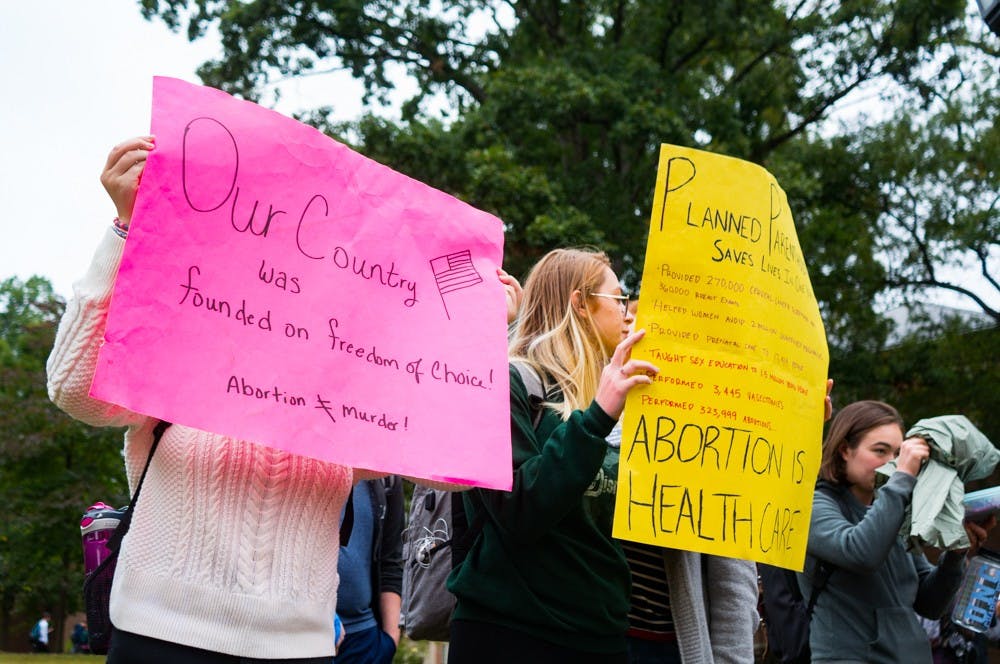With the confirmation of Amy Coney Barrett to the U.S. Supreme Court, the future of Roe v. Wade has become a top concern. Barrett has opined on the issue before, hinting at potential ways that a future Supreme Court may allow states to pass more restrictions on abortion.
The attempt to restrict abortions across the United States is one that attempts to use science to justify denying individuals their basic rights, endangering lives across the country. However, scientific evidence, if anything, proves that abortion is a necessary aspect of health care and should not be restricted in any form.
Abortion bans
Abortion bans do not stop abortions. Instead, they simply make the procedures more dangerous. Each year, about 42 million women worldwide choose to get abortions. Of these, around 21.6 million are considered unsafe. This results in 47,000 maternal deaths a year, making it one of the leading causes of maternal mortality. Existing restrictions in over half the country already limit access to timely and affordable abortions, and future legislation may increase such constraints.
Lawmakers and judges enacting these harmful, restrictive laws are generally negligent of the fundamentals of reproductive science. Restrictive abortion laws ban abortion as early as after six weeks of pregnancy in states like Ohio, Georgia, Louisiana and Missouri.
However, a majority of people who would attempt to seek abortions may not even realize that they are pregnant by that point, and although these works of legislation are labeled “heartbeat bills,” no heart exists in an embryo at that stage of development.
Fetal development
The argument that life starts with fertilization is weak. The same genetic material that begins with the fusion of a sperm and an egg could go on to develop into not just one person, but two or three, or not even a person at all. The fetus doesn’t develop human-specific brain activity (and therefore, cannot feel pain) until about 24 weeks after conception, and the vast majority of pregnancies are terminated well before this. Legal or clinical mandates for interventions to inform patients about pain before this point that a fetus may feel are scientifically incorrect, and they can expose those seeking abortions to risks and further distress.
When an abortion occurs after the 24-week mark, it is usually due to serious health issues that are not evident until later in the fetal development. This can also occur when a person determines that they wanted an abortion, but faced significant obstacles to obtaining care — which is exacerbated by restrictive legislation. In either case, laws that limit the circumstances under which abortion can legally occur violate individuals’ autonomy and limit access to abortion in cases of medical uncertainty and the possibility of fetal health abnormalities.
Abortion safety
The development of abortion has also moved away from invasive procedures to safe and effective medication and abortion pills. The National Academies of Sciences, Engineering and Medicine recently published a report that reviewed studies of the risks and long-term effects of abortion procedures. They concluded that legal abortion today is safe and effective, and that most abortions can be performed safely in an office or clinical setting.
Earlier this year, the March for Life, a pro-life movement, claimed science is on the side of the anti-abortion movement. However, the science behind reproductive health points to anything but. Abortion has been consistently proven to be safe, and fetal tissue research, an issue denounced at many anti-abortion protests, has led to life-saving medical advancements, including the development of vaccines for polio, rubella and measles.
Ultimately, efforts to ban access to abortion will not only affect those able to get pregnant, but create subsidiary risks for marginalized and low-income individuals. Access to reproductive health care is not a women’s issue — it is a human rights issue. Everyone benefits from access to health services, as well as the ability to start a family on their own timelines.
The movement to restrict abortion is simply a reflection of the administration’s inability to understand, trust and implement science into public policy.
To get the day's news and headlines in your inbox each morning, sign up for our email newsletters.


